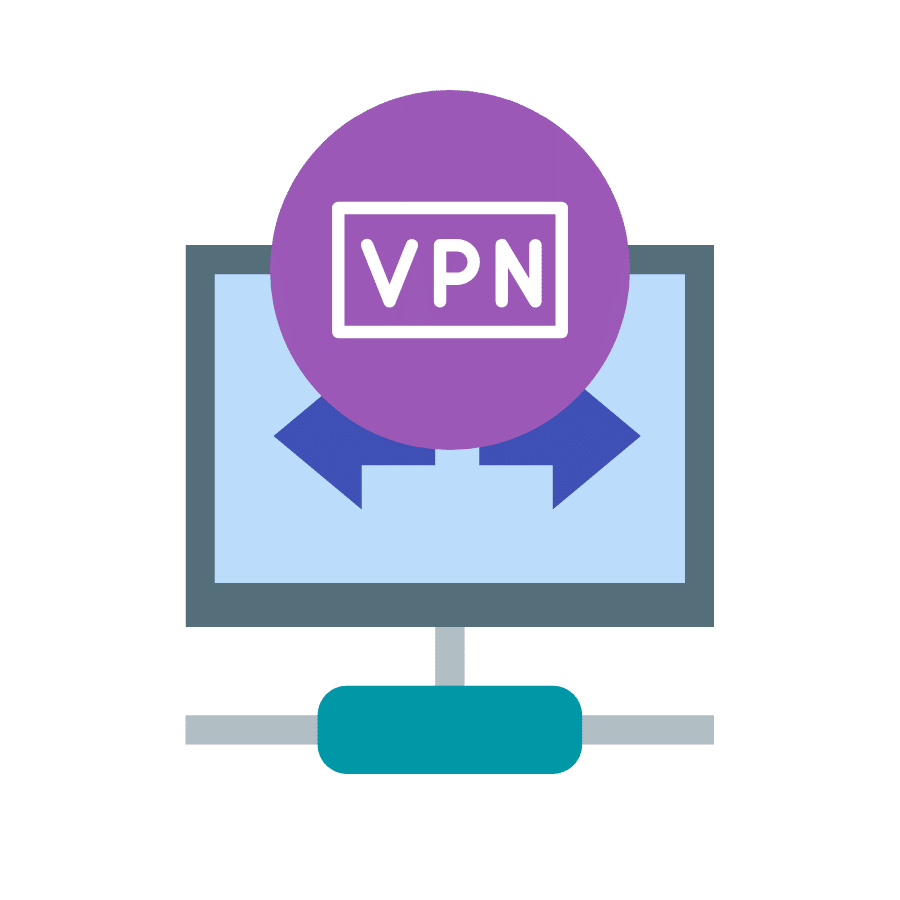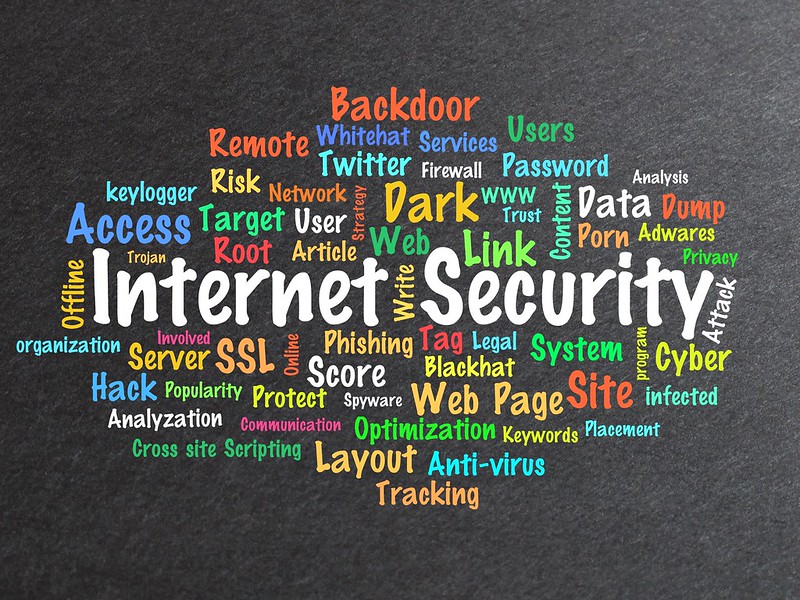
A virtual private network (VPN) is a technology that creates a safe and encrypted connection between your device and the internet. It functions as a virtual tunnel, routing your internet traffic through a remote server while concealing your true identity and location.
VPNs protect against hackers, data breaches, and intrusive surveillance. VPNs allow you to browse the web anonymously, access geo-restricted content, and safeguard your sensitive information from interception by encrypting your internet traffic and masking your IP address.
So, whether you’re a tech-savvy individual, a frequent traveler, or perhaps someone who values online privacy, our ultimate guide will provide you with the information you need to make smart decisions about VPNs. Learn to take control of your digital security!
Contents
Benefits of Using VPNs for Online Privacy
Choosing a Reliable VPN Service
Setting Up and Using a VPN Securely
Conclusion
Benefits of Using VPNs for Online Privacy

Image via cloudincome.com
In today’s digital age, virtual private networks (VPNs) are an essential tool for protecting your online privacy. They provide a variety of benefits that can help you improve your online experience and protect your digital imprint.
A VPN provides greater security, anonymity, and unrestricted access to the internet world while keeping potential risks at bay. Let’s look at some of the main advantages of using VPNs:
A. Enhanced Security and Encryption
VPNs protect your internet connection from harmful third parties while preventing your internet service provider (ISP) from tracking your online activities. This added degree of protection is especially vital when performing sensitive online activities like checking your bank account or making purchases from online businesses.
This ensures that your sensitive information, such as passwords, credit card details, and personal conversations, stays safe from likely hackers and cyber threats.
B. Anonymity and Privacy Protection
VPNs conceal your identity and location, allowing you to access the internet without disclosing your genuine identity or location. This is achieved by routing your internet traffic through a distant server, which encrypts your data and conceals your IP address, making it harder for third parties to monitor or intercept your online activities.
C. Bypassing Geo-Restrictions
VPNs enable you to view stuff that may be blocked in your zone. This is particularly beneficial for travelers who want to access their favorite streaming services or websites from overseas.
D. Protection on Public Wi-Fi Networks
Public Wi-Fi networks are infamous for their lack of security, making them great targets for hackers. However, with a VPN, you may have peace of mind even when using public Wi-Fi connections.
E. Protection against Hackers and Cyber Threats
VPNs act as a vital line of defense. By encrypting your data and masking your IP address, VPNs make it substantially tougher for hackers to target you. The additional layer of protection safeguards you against potential phishing attempts, malware infections, and other dangerous actions that could jeopardize your online security.
Choosing a Reliable VPN Service
With several options available, it’s critical to undertake extensive research before making a decision. Proceed by investigating various VPN companies to check their reputation, reviews, and track record. When it comes to selecting a trustworthy VPN provider, there are multiple aspects to consider to guarantee your online privacy and security are adequately safeguarded. Here are some important criteria to consider while selecting a good VPN service:
- Security Protocols Offered: Make sure the VPN provider offers highly secure protocols like OpenVPN, IKEv2, or WireGuard to shield your online activity.
- Logging Policy and Data Privacy: Check the VPN provider’s logging policy to ensure that no sensitive data, such as browser history or IP addresses, is gathered or retained.
- Server Network, Locations, and Speed: A VPN with a large number of server locations and high speeds is vital for overcoming geo-restrictions and experiencing a smooth online experience.Look for providers who provide a diverse choice of servers in multiple regions, allowing you to select the best one for your needs.
- Customer Support and User-Friendly Interface: Consider a VPN provider that offers timely customer assistance and a user-friendly interface that makes it easy to set up and use the VPN.
- Device Compatibility and Simultaneous Connections: Verify the VPN service’s compatibility with your devices and the operating system systems. It’s also vital to evaluate the maximum number of concurrent connections allowed, especially, if you plan to use the VPN on multiple devices.
- Pricing Plans: Compare pricing plans to discover the VPN providing the best deal. Consider whether they provide a free trial or a money-back guarantee so you may try the service before subscribing.
By carefully reviewing these aspects, you can select a reputable VPN provider that will properly safeguard your online privacy and security. In the following part, we will look at how to set up and access a VPN effectively.
Setting Up and Using a VPN Securely
Setting up and deploying a VPN effectively is vital for leveraging the rewards of internet privacy and security. By following best practices and critical actions, you can keep your online presence safe from potential cyber-attacks and privacy violations. Here are the necessary steps and recommendations to follow:
- Installing the VPN Software/App: To avoid potential security threats from third-party sources, make sure to download the program by visiting the VPN provider’s official website.
- Configuring VPN Settings: Once the software is installed, customize the VPN settings to suit your needs. This may include setting a specific server location, your desired encryption protocol, and enabling any additional security features provided by a VPN provider.
- Connecting to a VPN Server: After finalizing the settings, connect to the VPN server of your choosing. Choose a server location which is compatible with your planned online activity, such as accessing geo-restricted content or ensuring your privacy.
- Best Practices for Secure VPN Usage:
- Keep Software Updated: Update your VPN software on a regular basis to make certain you have the most recent security patches and features.
- Using Multi-Factor Authentication: Add an additional layer of security to your VPN account by activating multi-factor authentication.
- Enable Kill Switch and Leak Protection Features: The kill switch option will automatically disconnect your device from the internet if the VPN connection crashes, preventing data leaks.
- Avoid Public DNS Servers: To prevent DNS leaks and maintain anonymity, use the DNS servers provided by your VPN service over the public ones.
- Avoiding Suspicious Websites and Downloads: Be vigilant when exploring the internet, and avoid visiting suspicious websites or downloading random files.
- Regularly Changing VPN Server Locations: To improve confidentiality and prevent tracking of your online activities, rotate between several VPN server locations on a regular basis.
Conclusion
VPNs play an important role in enabling users to take charge of their digital footprint and protect critical information from online scammers. VPNs are effective tools for shielding your digital presence by enhancing security through encryption, ensuring anonymity and privacy protection, overcoming geo-restrictions, and encrypting your connection on public WiFi networks.
Remember to read privacy policies, update your devices and software on a regular basis, and proceed with caution when sharing sensitive information online. By prioritizing online privacy awareness, you can minimize risks and ensure a safer digital experience.
As technology advances, VPNs will continue to be an important tool for shielding our online privacy and security. By following the advice provided in this resource, you will be able to make sensible decisions and take control of your digital well-being.
